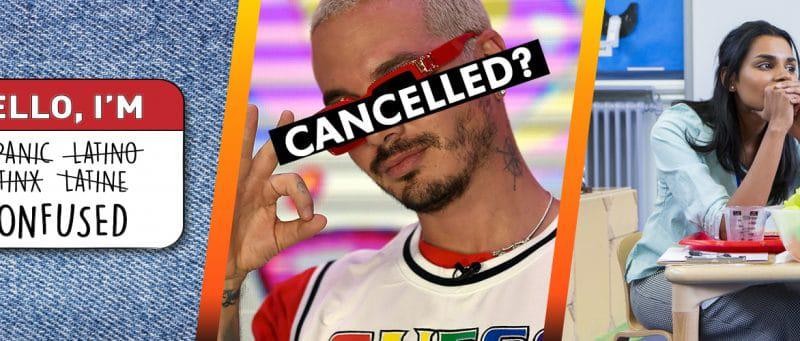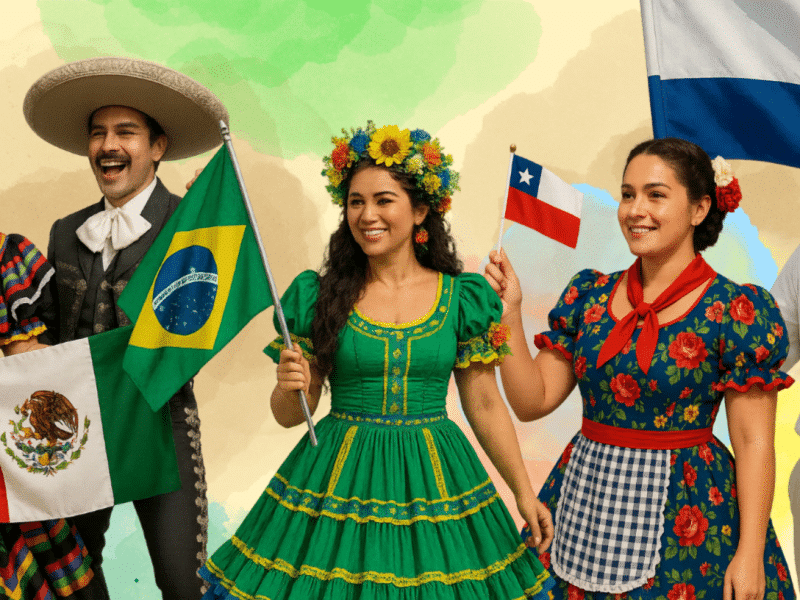2021 Won’t Soon be Forgotten
New year, new us! But what inspired your curiosity last year? Here are the stories you clicked on the most.

The year is fastly wrapping up and we couldn’t help but look back at this s**tshow of a year. Yeah we said it. We took a look at the topics that interested you all the most, and here’s what we found.
From overworked teachers to once again arguing (debating maybe?) about Latino identity, to J Balvin demonstrating not once, but several times, that he refuses to do anything about his anti-Blackness, 2021 had you all (and us) trying to digest all the things.
But let’s not blame the year. After all, it’s the humans who are doing all the things, not the calendar year. And here’s what they did in 2021:
America Prefers Teachers Who Offer Themselves as Tribute. And That Needs to Stop
Luz’s unabashed contributor Myriam Gurba, tackled the over the top expectations that American society places on teachers, expecting them to sacrifice and strain themselves physically and emotionally for the greater good instead of recognizing the hard work they do and treating them as human beings instead of sacrificial martyrs and educational heroes. During a time when so many parents were forced to become teachers themselves through homeschooling, the often horrific treatment of teachers resonated in a viral way.
Dear J Balvin We’re Trying to Enjoy Your Album Pero…
We’re reggaeton fans and generally have been J Balvin fans too, but after Balvin released a video that included scenes of him walking around Black women as dogs, amongst many other troublesome scenes, we had to point out the obvious: J Balvin has anti-Black beliefs that have manifested themselves on more than a few occasions. Listen mi gente, we love it when Latinos are winning, but we also have to hold our own accountable for their behavior. It’s up to the entire Latino community to say no to racism and anti-Blackness in our culture.

9 of the Best Telenovelas of All Time
We. Love. Telenovelas. So of course, we had to pick our favoritas to lay around and binge-watch. Whether it’s a throwback to when you were a kid forced to watch with your family or as an adult who’s still a fan of drool-worthy men and wild no-way-this-is-possible plotlines, the reasons don’t matter. Novelas are a part of our culture and we’re here for it. On to the switched-at-birth-babies and fairytale happy-endings.
3 Reasons to Consider Dual American/Mexican Citizenship and How to do it.
With the state of the affairs in the U.S., packing up our bags and leaving has been pretty tempting for many. We looked at the reasons why Mexico is slowly convincing Mexican-Americans that maybe getting dual citizenship might be a pretty great option, and how to get it done if that’s the case. With endless societal curve-balls, what better time than now to consider dual citizenship?
Latinas Discuss Race, Identity, and the term BIPOC
Latinas are diverse, and identity is always a complicated topic. Tackling Latino complexity deserves more than just published thought pieces. We need to have real conversation, nuanced discussion, and time to figure it all out. Tamarindo Podcast contributed their thoughts on the topic with deep and enriching conversation and you all were here for it. Check it out.
Is Rosalia Taking Advantage of Latinx Culture?
Gone are the days when Latinos were so underrepresented and misunderstood that the community was willing to accept anything it could get. The Latin revolution populated with mostly white European Spaniards is now a thing of the past and Latinos are now demanding representation of their own. So we asked, do Spanish artists like Rosalia still get to lead the mantle for Latinas as a white Spanish artist from Barcelona?
The History of Hoops and What They Mean to Latinas
We’re all about hoops and the way they make us feel when we put them on. But how and why did hoop earrings become a way of making bold statements with the mere presence of them on our ears? Turns out wearing them has a deeper meaning than just being a fashion accessory and it’s no surprise that women of color embody their power in a way that does their history justice.
Labels 101: Hispanic, Latino, Latinx, and More
The decades-old debate about Latino labels reared its ugly head in a big way in 2021. Latinx led the way in proving to be a generational marker of sorts with older people disliking the term, and younger people embracing the inclusive nature of it, though the term remains highly unliked or otherwise unknown with the majority of the U.S. based Latino population. How to categorize over 60 million people with roots from 33 Latin-American countries is no small task but it’s worth knowing where our labels came from so we can have an idea of where we’re going.
Happy 2022, familia!



